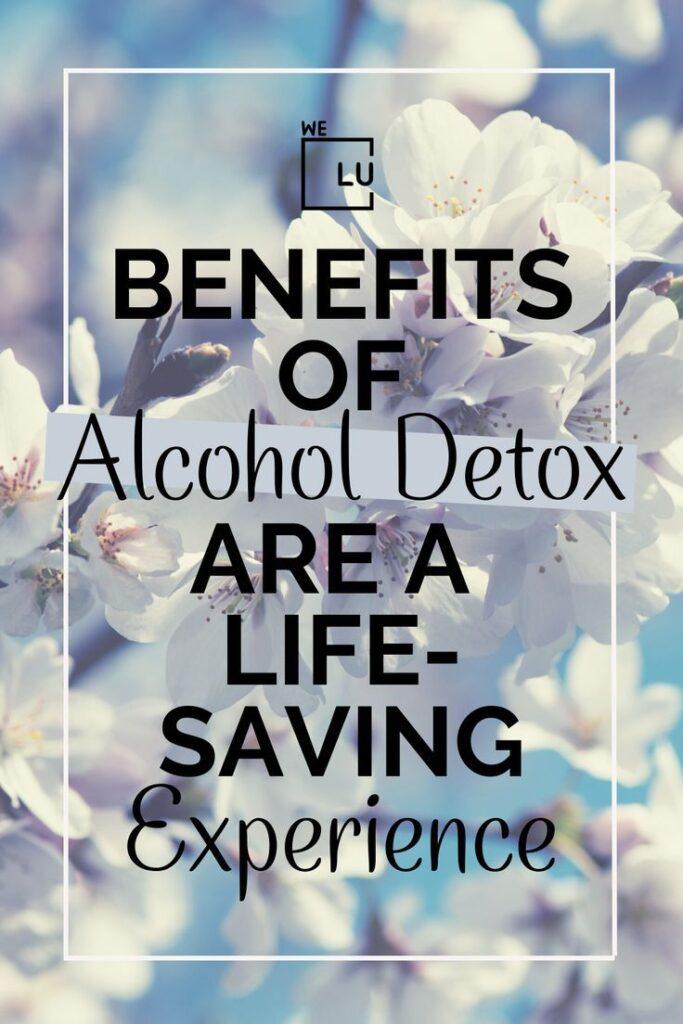Alcoholic Recovery Overview
Are you looking for ways to get help for alcoholism? Alcoholic recovery is the answer you’ve been looking for. If one of your loved ones has a significant drinking problem, you probably have a front-row seat to watch the devastation. That is also a tragedy. The fact you are reading this information is a testament to how much your care and want to see your loved one recover from their drinking problem.
Assuming that is your intention, the following information should help guide you to help them as best as possible. If you or someone you’re concerned with is seeking an “alcohol recovery near me,” we can help you explore treatment options. Call We Level Up today for the resources.
Start the Process of Alcoholic Recovery
Time and again, an alcoholic suffers in every way imaginable. The damage long-term alcohol abuse can do to a person’s life is one of time and time again; an alcoholic suffers in every way possible. The damage that long-term alcohol abuse can cause in a person’s life is one of life’s great tragedies. That includes having significant health problems, financial struggles, and the loss of meaningful relationships; there is no waiting to seek alcohol recovery.
Beyond what alcoholism does to the drinker, some collateral damage is always left in their wake. Many times, that collateral damage will have a direct impact on family members and very close friends.
Understanding Alcoholism Recovery
How do you help an alcoholic? As you contemplate how to help anyone with a drinking problem, you must understand they aren’t weak in character. They aren’t morally flawed. What they are is sick with a very devious disease. Yes, addictions are classified as diseases.
Even more troubling is alcoholism and other substance abuse problems aren’t curable. The best an alcoholic or drug addict can hope for is arresting their disease and rendering it dormant for the rest of their lives.
For your part, it would be a great help to accept that the person you love is sick. With all of the empathy and sympathy you can muster, that is what you will need in reserve if you want to help them with alcohol addiction.
The First Step Towards Recovery from Alcoholism
You likely realize that, at some point, this information will discuss the intervention process for an alcoholic. Before things get to that point, there is one thing you can look for in your loved one. You can look for them to get to the point where they can admit they are sick and need help. That would be the right first step in alcoholic recovery.
As the one you love nears rock bottom, they may still hang onto a bottle of booze. That’s the point when your patience will likely get tested. Stay the course and look for opportunities to help. When your other options have fallen short, it might be time to call for an intervention.
How to Run an Effective Intervention For Helping an Alcoholic?
As you contemplate organizing an intervention, you must understand this is painful. There isn’t any way to know for sure how things will go. In a best-case scenario, your loved one will admit they are an alcoholic and agree to go into rehab. Anger and confusion could come from the process if things don’t go well.
You have three choices if you think an intervention is the right thing to do. Your choices are:
- Organize and run the intervention yourself.
- Ask another family member or friend to run the intervention.
- Seek help from a professional addiction treatment professional who specializes in intervention coaching.
When you’re searching an “alcohol help near me,” you might want to consider seeking intervention services when someone that you’re concerned with is in denial. You would benefit from knowing some general intervention guidelines regardless of your choice.


Skip To:
Learn More:
- How to Relieve Stress Without Alcohol?
- How to Flush Alcohol Out of Your System?
- Alcohol Detox Timeline & How To Safely Manage Alcohol Withdrawal Symptoms Treatment
- How To Sober Up? Are There Fast Ways To Sober Up From Alcohol?
- How To Clean Your System Of Alcohol in 24 Hours? How to Get Alcohol Out of System Fast? Tips & Strategies.
- How Long Does Alcohol Stay In Your System? Blood, Urine, & Breathalyzer Test
- Addiction Counseling Near Me, Drug & Alcohol Therapies
- Discover Top-Rated Drug & Alcohol Medical Detox Near Me, Licensed Accredited Programs & Detox Treatment Centers.
- Calculator for Blood Alcohol Concentration (BAC). Find out What Your BAC Is. BAC Levels For Men & Women. How Should BAC Be Managed?
- 101 Inspirational Recovery Quotes for Mental Health, Drug & Alcohol Recovery Quotes. Best Ever Daily Quotes from Alcohol Recovery Stories.
- Addiction Counseling Near Me, Drug & Alcohol Therapies
Alcohol Recovery Timeline
Understanding the timeline for recovery can benefit individuals needing help with alcoholism. The alcohol brain recovery timeline can vary from person to person, based on various aspects such as the individual’s overall health, the severity of their alcohol use disorder, the presence of any co-occurring conditions, and the type of treatment received. However, here is a general timeline that outlines the stages of alcohol recovery:
The first stage of alcohol recovery is detoxification, where the body eliminates alcohol and goes through withdrawal symptoms. This period typically lasts for a few days to a week. Withdrawal symptoms can range from mild to severe and may include anxiety, tremors, sweating, nausea, insomnia, and in some cases, seizures or delirium tremens (DTs). Medical supervision during detoxification is often recommended, especially for individuals with a history of heavy or prolonged alcohol use. Brain recovery from alcohol timeline starts when alcohol is already out of your system.
After detoxification, individuals enter the early abstinence phase. During this time, they may experience physical and psychological symptoms of withdrawal, including cravings, mood swings, irritability, and difficulty concentrating. Supportive therapies, such as counseling, support groups, and medication (if prescribed), may be utilized to help manage these symptoms and promote sobriety.
The intermediate recovery phase is marked by continued abstinence from alcohol and the gradual improvement of physical and mental health. Many individuals experience a reduction in withdrawal symptoms, and their energy levels start to increase. This stage often involves ongoing therapy, support group participation, and the development of healthy coping mechanisms to address the underlying causes of alcohol use disorder.
In the maintenance phase, individuals have achieved significant progress in their recovery journey. They continue to abstain from alcohol and work on maintaining their sobriety long-term. Ongoing therapy, counseling, and participation in support groups remain essential for relapse prevention and addressing any challenges that may arise. This stage also focuses on rebuilding relationships, establishing a healthy lifestyle, and developing strategies to manage stress and triggers.
When looking for “alcohol recovery centers near me,” look for accredited facilities to treat alcohol use disorders. Search for experienced healthcare professionals trained for alcohol problems.
Top 7 How to Help an Alcoholic Family Member? FAQs
-
How to help an alcoholic friend?
You cannot force someone to change or recover from alcoholism. Your friend must be willing to accept addiction alcohol help and decide to change. Be a supportive and compassionate friend, recognize your limits, and seek professional guidance.
-
How to help an alcoholic parent?
You cannot force someone to change or recover from alcoholism. Your role is to offer support, provide information, and encourage them to seek help. If the situation becomes unmanageable or your parent’s health is at risk, involving professionals or seeking intervention strategies may be necessary. Your parent may face setbacks and relapses along the way. Be patient, understanding, and supportive during these times. Offer encouragement to get back on track and remind them of their progress.
-
How to help an alcoholic spouse?
Support your spouse in adopting a healthier lifestyle with activities and hobbies not involving alcohol. Encourage them to engage in exercise, healthy eating, and stress-reducing activities. Help create a supportive environment that promotes their well-being. Supporting an alcoholic spouse can be emotionally challenging. Seek support from friends, family, or support groups to cope with the hardships you may encounter. It’s crucial to take care of your well-being during this process.
-
How to help an alcoholic husband?
Suggest that your husband seek professional assistance from healthcare providers, therapists, or addiction specialists. Offer to help him find resources and accompany him to appointments if he is open. Establish clear boundaries regarding his drinking behavior and communicate the consequences of crossing those boundaries. Boundaries can protect your well-being and the well-being of your family. Be prepared to enforce these boundaries consistently.
-
How to help an alcoholic child?
Create a safe and non-judgmental space for your child to talk about their struggles with alcohol. Let your loved one know you are there to listen and support them. Avoid blaming or shaming them, as it may hinder their willingness to seek help. Supporting an alcoholic child can be emotionally draining. Make sure to prioritize your well-being and seek support from friends, family, or support groups. Taking care of yourself will help you to support your child better.
-
How to help an alcoholic sibling?
Learn about alcoholism and its effects to understand better what your sibling is going through. This knowledge will help you approach the situation with empathy and provide appropriate support. Maintain open communication. Foster open and honest communication with your sibling about their addiction and recovery. Encourage them to share their experiences, feelings, and progress. Listen without judgment and provide support and encouragement along the way.
-
How to help an alcoholic son?
Express your concern. Talk to your son about your concerns regarding his drinking. Use “I” statements to express how his behavior impacts you, the family, and his well-being. For example, say, “I am worried about your health and future because I’ve noticed you’ve been drinking heavily.” Suggest that your son attends treatment programs for alcohol and support group meetings like Alcoholics Anonymous (AA) or other recovery programs. These support groups provide a supportive community of individuals who understand the challenges of alcohol addiction and can offer guidance and encouragement. When you’re looking for “help for alcoholics near me,” Alcoholics Anonymous can significantly help.
Alcohol Addiction Recovery Fact Sheet
Steps to Alcohol Recovery
Recovering from alcohol use disorder is a challenging but achievable process. Here are some essential steps to start recovery for alcoholics:
- Recognize the Problem: The first step in alcohol recovery is acknowledging and accepting that there is a problem with alcohol use. It involves being honest with yourself about the harmful impact alcohol has had on your life, relationships, and overall well-being.
- Seek Professional Help: Reach out to a healthcare professional, such as a doctor, counselor, or addiction specialist, who can provide guidance and support throughout your recovery to alcohol sobriety. They can help assess your situation, recommend appropriate treatment options, and create a personalized recovery plan.
- Detoxification: For individuals with a severe alcohol use disorder, medically supervised detoxification may be necessary. This process involves safely removing alcohol from the body while managing withdrawal symptoms and potential complications. Healthcare professionals might provide medication to help with alcohol withdrawal.
- Explore Treatment Options: There are various alcohol treatment options available for alcohol recovery, including the following:
- Inpatient Rehabilitation: Inpatient programs provide intensive treatment and support in a residential setting. They offer structured therapy sessions, counseling, support groups, and a supportive environment away from triggers and temptations.
- Counseling and Therapy: Individual counseling, group therapy, and behavioral therapies like cognitive-behavioral therapy (CBT) can be instrumental in addressing underlying issues, changing negative thought patterns, and developing coping mechanisms to prevent relapse.
- Mutual Support Groups: Participating in mutual support groups such as Alcoholics Anonymous (AA) can provide valuable peer support, guidance, and a sense of community during recovery.
- Develop Coping Strategies: Learning healthy coping strategies is crucial for long-term recovery. This includes identifying triggers and developing alternative ways to deal with stress, emotions, and cravings. Engaging in activities like exercise, hobbies, mindfulness, and seeking support from loved ones can be helpful.
- Build a Supportive Network: Surround yourself with supportive individuals who understand your journey and can provide encouragement and accountability. This may involve involving family, friends, and support groups in your recovery process. Save alcoholics helplines.
- Address Co-occurring Disorders: Alcohol use disorders often coexist with psychiatric disorders such as depression, anxiety attacks, or trauma. Addressing these co-occurring disorders through appropriate treatment and therapy is necessary to ensure comprehensive recovery.
- Practice Relapse Prevention: Relapse is a standard part of recovery but can be prevented. Comprehend the risk factors that can lead to relapse, develop a relapse prevention plan, and stay vigilant about your triggers. If a relapse occurs, seek help and get back on track as soon as possible.
Alcohol Poisoning Recovery
How to help alcohol poisoning? If you think someone is struggling with alcohol poisoning, it is critical to take immediate action, as it can be life-threatening. Here’s what you can do to help someone with alcohol poisoning:
- Call for Emergency Medical Assistance: Dial emergency services right away (e.g., 911 in the US) and give them all the necessary information, including the person’s condition, symptoms, and the amount and duration of alcohol consumption.
- Stay with the Person: While waiting for emergency medical help, stay with the affected person and monitor their condition closely. Do not leave them alone, especially if they are unconscious.
- Protect the Airway: If the person is conscious and able to sit up, encourage them to remain seated. If they are unconscious, turn them onto their side in recovery to prevent choking in case of vomiting. This helps keep the airway clear and reduces the risk of aspiration.
- Do Not Encourage More Alcohol or Food: Refrain from giving the person more alcohol, food, or coffee, as these will not help reverse alcohol poisoning. Additionally, avoid attempting to induce vomiting, as it can be dangerous without medical supervision.
- Monitor Vital Signs: Observe the person’s breathing, pulse, and skin color. If they have irregular, slow, or shallow breathing, or if their skin appears pale, clammy, or bluish, it could be a sign of severe alcohol poisoning.
- Provide Reassurance and Support: Stay calm, reassure the person that helps is on the way, and try to keep them awake and engaged in the conversation if they are conscious. Keeping them alert can help prevent them from slipping into unconsciousness.
The actions listed above are steps to ensure the person’s safety and well-being while waiting for medical assistance. Always follow the guidance of healthcare professionals and emergency responders when they arrive.

Alcohol Use Facts & Resources
Download the below PDF file published by Substance Abuse and Mental Health Services Administration (SAMHSA). This file has been made publicly available for downloading in helping alcoholism awareness.
If you’re looking for an “alcoholic help near me,” look for a qualified alcohol rehab centers qualified for treating alcohol use disorder.

Get Your Life Back
Find Hope & Recovery. Get Safe Comfortable Detox, Addiction Rehab & Dual Diagnosis High-Quality Care.
Hotline(844) 597-1011Alcoholic Recovery Statistics
Recovery is a complex and individual process, and success rates can be influenced by factors such as the severity of alcohol use disorder, the type and duration of treatment received, the presence of co-occurring conditions, and the individual’s commitment to recovery. Here are some general statistics regarding alcoholic recovery:
27%
27% of individuals who achieved one year of sobriety were still sober after five years.
Source: NCBI
1/3
Relapsing to alcoholism occurs in almost 1/3 of recovering alcoholics during their 1st year of sobriety.
Source: NIAAA
60%
Success rates for alcohol addiction treatment vary, but they generally range from 40% to 60%. These rates can be influenced by factors such as the type of treatment program, length of treatment, and the individual’s level of engagement and commitment to recovery.
Source: NIDA
Alcoholic Recovery Intervention Options
It might be challenging to seek “alcohol addiction help near me” if you’re loved one refuses help. Staging an intervention for someone struggling with alcohol addiction can be an essential and practical step toward helping them recognize the severity of their problem and motivating them to seek treatment. An intervention is a structured process that involves family members, friends, and sometimes a professional interventionist coming together to confront the individual about their alcohol addiction and encourage them to get help.

First of all, all participants need to come to the intervention prepared. It would be beneficial if they designed a script that explains to the addict why they are concerned and how the individual’s drinking problem has affected them. While delivering these messages, everyone should avoid attacking or being negative. Try to remain supportive throughout the process.
Before holding the intervention, looking into a few rehabs in the area would be a good idea. If the loved one agrees to go into rehab, knowing they might already have a place to go will be comforting. Should the intervention not go as planned, stay the course. There is a good chance the drinker will at least hear the words and feel everyone’s concern. Later, they might reflect on what happened during the intervention and use that as a catalyst to finally seek help.
Get Help. Get Better. Get Your Life Back.
Searching for Accredited Drug and Alcohol Rehab Centers Near You?
Even if you have failed previously and relapsed, or are in the middle of a difficult crisis, we stand ready to support you. Our trusted behavioral health specialists will not give up on you. When you feel ready or just want someone to speak to about therapy alternatives to change your life call us. Even if we cannot assist you, we will lead you to wherever you can get support. There is no obligation. Call our hotline today.
(844) 597-1011What You Need to Know About Alcoholic Recovery?
How to get help for an alcoholic? The We Level Up treatment centers treat substance abuse disorders and provide alcohol abuse help. If your loved one would agree to come to us, we could certainly give them the help they need. In all likelihood, the help for alcohol addiction process would start with time in a medically monitored detox program. After months or years of heavy drinking, the problem drinker will encounter severe withdrawal symptoms.
For someone who abuses alcohol, the most troubling potential withdrawal symptoms would be:
- Elevated blood pressure.
- Nausea and vomiting.
- Sleeping issues.
- Rapid heart rate or palpitations.
- Tremors (shaking) in the extremities.
- Rapid emotional changes.
- Difficulty thinking clearly.
- Delirium tremens (or DTs).
How to help an alcoholic quit? A good, medically monitored detox program’s role is to ensure the client is safe during withdrawal while preventing relapse. If issues occur, medical professionals will stand by to intervene with medication if necessary. Are you searching for “alcohol recovery programs near me?” Contact We Level Up rehab centers for alcohol and dual diagnosis programs.
Alcoholic Recovery Treatment
After going through detox, your person would need to go into therapy. This would be their opportunity to work with a therapist on the journey of self-discovery. The goal would be to dig through the hurt and pain to find the root causes of the addiction. As a result, finding these root causes would identify where they need a better life and coping skills.
While in alcoholic recovery, your person would undoubtedly spend much time in individual therapy. They might also get to work in groups, eventually providing the one they love with support resources for the future.
Finally, there is always time for family therapy during alcoholic recovery. This would give you and other family members a chance to learn the truth about your person’s substance abuse issue. Through that understanding, fences could get mended, and everyone involved could know how to provide support in the future.
How to help alcoholics? After reading this information about alcoholic recovery, you should know how to help your person get the needed help. Above all, try to be patient without becoming codependent. When it is time to consider rehab, contact one of our We Level Up treatment centers. We would be glad to tell you about our treatment facilities and services.

World-class, Accredited, 5-Star Reviewed, Effective Addiction & Mental Health Programs. Complete Behavioral Health Inpatient Rehab, Detox plus Co-occuring Disorders Therapy.
CALL(844) 597-1011End the Addiction Pain. End the Emotional Rollercoaster. Get Your Life Back. Start Drug, Alcohol & Dual Diagnosis Mental Health Treatment Now. Get Free No-obligation Guidance by Substance Abuse Specialists Who Understand Addiction & Mental Health Recovery & Know How to Help.
TOP 7 How to Help Someone With an Alcohol Problem? FAQs
-
How to help an alcoholic stop drinking?
Helping an alcoholic stop drinking is complex, often requiring professional intervention. To help them minimize the presence of alcohol in their surroundings. Encourage them to remove alcohol from their home and avoid social situations where drinking is prevalent, at least in the early stages of alcoholic recovery. Offer to participate in sober activities together.
-
How to help an alcoholic in denial?
Find an appropriate moment to discuss your concerns when the person is sober and relatively calm. Avoid confronting them when intoxicated or amid a drinking episode, as it may not be productive. Let the individual who struggles with alcoholism know you are there for them and their sober journey and want to help. Offer to assist them in finding resources, such as support groups or treatment options, but be prepared for them to resist the idea initially. Dealing with an alcoholic in denial can be emotionally challenging. Contact support groups or seek counseling to help you survive the stress and uncertainty. It’s vital to take care of your well-being.
-
How to convince an alcoholic to get help?
Ultimately, the decision to seek help lies with the individual. You can provide information, support, and encouragement but cannot force someone to change. It may take time and multiple conversations before they accept help. Be patient, and continue to offer your understanding and support throughout their journey.
-
How does Alcoholics Anonymous help people deal with alcoholism?
Alcoholics Anonymous is a worldwide fellowship meeting of individuals who are struggling or who have struggled with alcoholism. AA follows a 12-step program aimed at helping people recover from alcoholism and maintain sobriety. The core of AA’s approach is the 12-step program, which provides a structured framework for individuals to work through their alcohol addiction. These steps involve admitting powerlessness over alcohol, seeking a higher power for guidance, making amends, and helping others recover.
-
How to get an alcoholic help?
If your loved one doesn’t want to receive help, it may be necessary to consider interventions or involve professionals who specialize in addiction. Ultimately, individuals must be willing to accept help and decide to change.
-
How to help someone with alcohol poisoning?
Alcohol poisoning is a medical emergency, and it is crucial to seek professional medical assistance immediately. Even if the person’s symptoms seem to improve, it is necessary to let medical professionals assess their condition to ensure their safety.
-
What helps with alcohol cravings?
Everyone’s journey to alcohol recovery is unique. It may take a while to seek the medication to help with alcohol cravings and strategies that work best for you. Be patient, persistent, and compassionate with yourself. If you struggle with intense cravings or need additional support, contact a healthcare professional or addiction specialist for guidance.
Surefire Tips How to Help an Alcoholic | How to Help an Addict | Drug Addiction Help that Works.
Getting someone to admit they have a problem and accept help is rarely easy. Persistence is key. You can get your loved ones the help they deserve in due time. Here are the 4 tips to convince your loved one to get help:
4 Surefire Tips to Convince An Addict or Alcoholic to Get Help They Deserve. Video Transcript.
- Understand the problem: Educate yourself on the signs and symptoms of addiction and the potential consequences of not seeking help.
- Search for treatment options: Learn about treatment options and the steps your loved one can take toward recovery. Talk to an addiction specialist or therapist for advice.
- Be patient: Your loved one may not be ready to accept help, even with a clear solution. Allow them to take the time necessary to come to terms with their situation and make the best decision.
- Seek support: Join a family or friend support group. You can find these in your community or online.
If you ever need support, give us a call ☎ at (561) 678-0917 alcohol help hotline. Don’t hesitate to call us today if you’re looking for an “alcoholism help near me.” We Level Up treatment centers offer complete levels of care for alcohol use disorder. We offer alcohol detox all across the US, with our main detox centers in Florida, Washington, Texas, California, and New Jersey. Moreover, We Level Up West Palm is now the official new brand for MCW Mental Health and Thrive Alcohol Recovery Centers.
Experience Transformative Recovery at We Level Up Treatment Centers.
See our authentic success stories. Get inspired. Get the help you deserve.
Start a New Life
Begin with a free call to an addiction & behavioral health treatment advisor. Learn more about our dual-diagnosis programs. The We Level Up Treatment Center Network delivers recovery programs that vary by each treatment facility. Call to learn more.
- Personalized Care
- Caring Accountable Staff
- World-class Amenities
- Licensed & Accredited
- Renowned w/ 100s 5-Star Reviews
We’ll Call You
Search We Level Up Alcoholic Recovery Detox, Mental Health Topics & Resources
Sources
[1] Newman RK, Stobart Gallagher MA, Gomez AE. Alcohol Withdrawal. [Updated 2022 Aug 29]. In: StatPearls [Internet]. Treasure Island (FL): StatPearls Publishing; 2023 Jan-. Available from: https://www.ncbi.nlm.nih.gov/books/NBK441882/
[2] Alcohol Facts and Statistics – National Institute on Alcohol Abuse and Alcoholism (NIAAA)
[3] Nehring SM, Freeman AM. Alcohol Use Disorder. [Updated 2022 Jul 31]. In: StatPearls [Internet]. Treasure Island (FL): StatPearls Publishing; 2023 Jan-. Available from: https://www.ncbi.nlm.nih.gov/books/NBK436003/
[4] Alozai Uu, Sharma S. Drug and Alcohol Use. [Updated 2022 Jun 21]. In: StatPearls [Internet]. Treasure Island (FL): StatPearls Publishing; 2023 Jan-. Available from: https://www.ncbi.nlm.nih.gov/books/NBK513263/
[5] Alcohol use disorder – Available from: https://medlineplus.gov/download/genetics/condition/alcohol-use-disorder.pdf
[6] Huebner RB, Kantor LW. Advances in alcoholism treatment. Alcohol Res Health. 2011;33(4):295-9. PMID: 23580014; PMCID: PMC3860532.
[7] Center for Substance Abuse Treatment. A Guide to Substance Abuse Services for Primary Care Clinicians. Rockville (MD): Substance Abuse and Mental Health Services Administration (US); 1997. (Treatment Improvement Protocol (TIP) Series, No. 24.) Chapter 5—Specialized Substance Abuse Treatment Programs. Available from: https://www.ncbi.nlm.nih.gov/books/NBK64815/
[8] LaHood AJ, Kok SJ. Ethanol Toxicity. [Updated 2023 Mar 13]. In: StatPearls [Internet]. Treasure Island (FL): StatPearls Publishing; 2023 Jan-. Available from: https://www.ncbi.nlm.nih.gov/books/NBK557381/
[9] Alcohol’s Effects on Health – National Institute on Alcohol Abuse and Alcoholism (NIAAA)
[10] Alcohol’s Effect on Health: NIAAA brochures and fact sheets – National Institute on Alcohol Abuse and Alcoholism (NIAAA)


